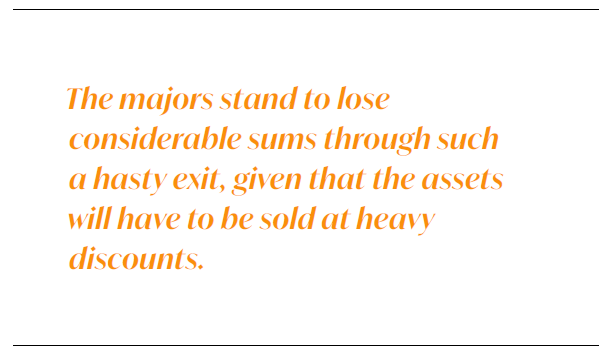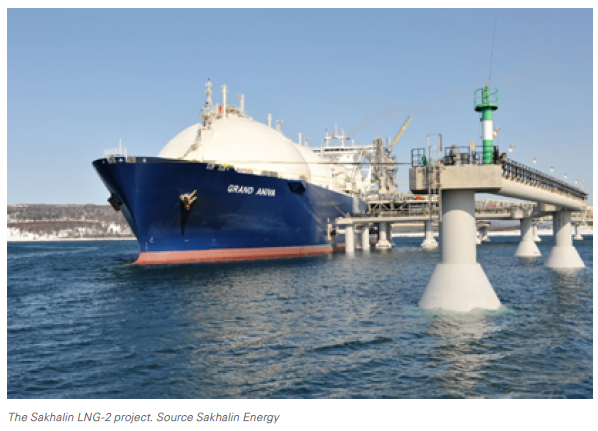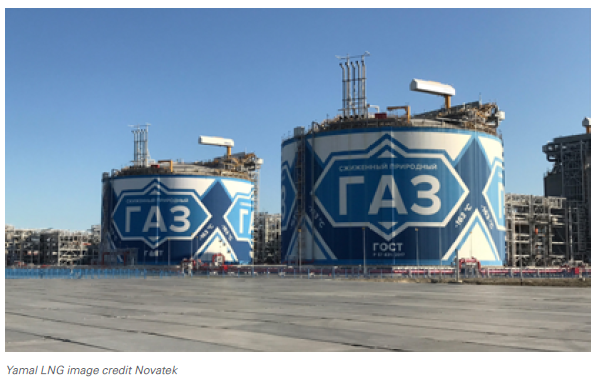The great IOC exodus from Russia [Gas in Transition]
Many of the Western international oil companies (IOCs) that helped Russia revive its oil and gas industry following the breakup of the Soviet Union have now announced their intent to withdraw from the country in response to Moscow’s invasion of Ukraine. The lucrative assets they are leaving behind look set either to fall into the hands of Asian investors, most likely China’s state-owned oil giants, or become renationalised. Either way, with Russia’s access to Western technology and expertise now severely limited, there is a risk that these assets will languish, potentially creating a drag on Russian production levels for years to come. The IOCs are also giving up businesses that generated significant income, and with the loss, some may find it harder to finance their energy transition plans.
BP moves first
The first international oil company (IOC) to call time on its Russian activities was BP, which is also the country’s largest foreign investor. The UK major has a 19.75% stake in Russia’s top oil producer Rosneft, and is also partnered with the company directly in several exploration and development projects. The most significant of these projects is Taas-Yuryakh in Eastern Siberia, where BP holds a 20%, and Kharampur, where the UK major has a 49% position.
Taas-Yuryakh’s flagship asset is the Srednebotuobinskoye oilfield, which was brought on stream in 2013 and now flows at a plateau rate of around 100,000 barrels of oil per day. This oil is delivered to markets in Asia via the Eastern Siberia - Pacific Ocean (ESPO) pipeline. Kharampur is a gas field that had been scheduled to start flowing later this year, and it is unclear how BP’s departure will affect commissioning. The project, a cornerstone in Rosneft’s gas development strategy. is due to produce at a rate of 10bn m3/year of gas by the mid-2020s under its first stage, and up to 25 bcm at a later stage.
Rosneft had hoped to convince Russia’s government to let it deliver Kharampur’s gas to Europe, despite Gazprom’s monopoly over the country’s pipeline exports. Given Europe’s desire to reduce Russian imports as quickly as possible, that now looks like a very distant prospect.
BP has been working in Russia for over three decades, having first opened an office there in 1990. It acquired its stake in Rosneft through the latter’s $55bn acquisition of TNK-BP in 2013. By relinquishing this interest, BP will lose around a third of its production, which totalled 3.3mn barrels of oil equivalent/day in 2021, and about 55% of its reserves.
Others follow
Norway’s Equinor was the next to announce its withdrawal. But unlike BP, its exposure to the Russian market is relatively small. At the end of 2021 it had $1.2bn of assets in the country, from which it nets a combined 25,000 boe/d. It has partnerships with Rosneft at the challenging North Komsomolskoye heavy oilfield in Western Siberia, and the similarly complex Domanik limestone oil formation in the Volga-Urals area, where a three-year pilot programme is underway. Equinor has since said it will also cease trading Russian crude oil and other petroleum products, after it fulfils existing contracts this month.
 The next announcement came from Shell, which said it was leaving its joint ventures with Gazprom, including at the 10mn metric ton/year Sakhalin-2 LNG plant in the Russian Far East and the Salym Petroleum joint venture it has with Gazprom Neft in Western Siberia. Shell too is phasing out the purchase of Russian hydrocarbon products, although it only took this step after drawing criticism for buying a discounted cargo of Russia’s Urals oil earlier this month.
The next announcement came from Shell, which said it was leaving its joint ventures with Gazprom, including at the 10mn metric ton/year Sakhalin-2 LNG plant in the Russian Far East and the Salym Petroleum joint venture it has with Gazprom Neft in Western Siberia. Shell too is phasing out the purchase of Russian hydrocarbon products, although it only took this step after drawing criticism for buying a discounted cargo of Russia’s Urals oil earlier this month.
ExxonMobil is meanwhile departing from the Sakhalin-1 oil project, where it works alongside Rosneft. It has served as operator there since the mid-1990s, and NGW understands that the company’s departure risks causing issues with the project’s performance. Rosneft is currently preparing to take over operationship, and has dispatched managers to the site for this task, according to information obtained by NGW.
Italy’s Eni too has said it is leaving the country, but its presence there is marginal, limited to exploration projects in the Arctic that have been on hold anyway since 2014 as a result of Western sanctions.
Less drastic steps
The second largest investor in Russia’s oil and gas sector after BP is TotalEnergies, but unlike its UK counterpart, so far it seems it intends to stay in the country. This is despite Russia accounting for a smaller share of TotalEnergies’ business in comparison to BP, constituting 24% of its proven reserves and 17% of its oil and gas production in 2020.
TotalEnergies reported on March 1 that it would not provide capital to any new projects in Russia in light of Moscow’s invasion, but made no mention of withdrawal plans. The company is a 19.4% shareholder in Novatek, Russia’s largest LNG exporter, and also has minority stakes in Novatek’s 17.5mn mt/yr Yamal LNG plant, commissioned in 2017, and its 20mn-mt/yr Arctic LNG-2, due to start up in 2023. Novatek likely saw TotalEnergies as a potential partner to provide financing, expertise and technological support for the other LNG projects that Novatek has in the pipeline, such as Arctic LNG-1 and Arctic LNG-3. Unless TotalEnergies softens its stance in the future, that will no longer be possible.
It is possible that TotalEnergies may yet decide to quit Russia. Indeed, the French government faces mounting pressure to convince the IOC to do so. And several NGOs are even pursuing legal action, citing French human rights law.
Austria’s OMV has similarly not mentioned any plans to divest its 25% interest in Gazprom’s Yuzhno-Russkoye field in Western Siberia, but has said it will not invest in any further projects in Russia. That means its deal to acquire a 25% stake from Gazprom in the Achimov 4A and 5A blocks in Western Siberia is dead, although the agreement has been repeatedly delayed for years anyway.
Likewise, Wintershall Dea has said it will not receive any revenue from its oil and gas projects in Russia, nor make further payments to Russia, until sanctions have been lifted. It is Gazprom’s partner at both Yuzhno-Russkoye and the Achimov gas projects.
While OMV and Wintershall Dea have smaller footprints in Russia than the likes of BP, Shell and TotalEnergies, their operations in the country nevertheless account for significant shares of their overall production. Of the nearly 500,000 boe/d of hydrocarbons that OMV produced in 2021, 100,000 boe/d came from Russia. Wintershall Dea is even more exposed, as Russia accounts for almost half of the 440,000 boe/d it flows.
Losses incurred
The majors stand to lose considerable sums through such a hasty exit, given that the assets will have to be sold at heavy discounts. In BP’s case, since both CEO Bernard Looney and former CEO Bob Dudley have resigned from Rosneft’s board, accounting rules stipulate that the resulting loss of influence requires a $14bn impairment on its books. What is more, BP will have to record a charge of up to $11bn from foreign exchange losses accumulated since it bought the stake in the Russian company in 2014.
BP is also losing a valuable source of low-cost production. Morningstar estimates that Rosneft accounted for $2.7bn of BP’s $22.3bn in adjusted operating income in 2021, and 3-4% of its operating cash flow over the last three years. The company plans to scale back its oil and gas production by 40% over the next decade and substantially invest in renewables and other low-carbon technologies. But it will need to keep hold of some lucrative hydrocarbon assets to finance this transition.
Meanwhile Novatek contributes 7% of TotalEnergies’ cash flow, according to Morningstar. While it will remain a participant at Arctic LNG-2, the French company had been banking on future liquefaction projects in Russia to expand its LNG portfolio in the longer term.
Potential replacements
For those IOCs that have stated they will leave Russia, it remains to be seen how long it will take them to physically withdraw. Russia has said it will temporarily block foreign companies from existing their investments, although details of this ban would be implemented have not been presented. The government has even warned it might seize their assets.
“The exodus of international majors from Russia appears to have taken their partners and the Russian state itself by surprise,” Daria Melnik, an upstream analyst for Russia at Rystad Energy, says. Even with the impending M&A ban, she still expects them to leave “as increased geopolitical and reputational risks may prevail in the short to medium term. If the ban is imposed, the exodus of foreign companies from Russia may be stalled for a while, but the bigger sales will most likely go ahead, opening the opportunities for other foreign investors.”
The assets almost certainly will be sold at a huge discount to their real value, she says, noting that nationalisation via acquisition is possible. If they are sold to other foreign interests, China and India are the most likely candidates. Asian companies, even those in countries aligned politically with the West such as Japan, have been reluctant to part ways with their interests in Russia in spite of the conflict in Ukraine. And Chinese and Indian companies already have sizable positions in the country’s oil industry.
China’s CNPC, CNOOC and Silk Road Fund are investors in Novatek’s LNG projects, while Sinopec is a partner at Rosneft’s Udmurtneft oil project in the Udmurtia area in the Volga-Urals basin. The project yielded 120,000 b/d of oil in 2021, although production is due to begin declining in the mid-2020s. Meanwhile Beijing Gas has a minority share of Rosneft’s Verkhnechonskneftegaz project in Eastern Siberia, the main asset of which is the Verkhne-Chonskoye field.
India’s ONGC Videsh is a partner at Sakhalin-1, and it is also part of an Indian consortium also involving Oil India, Indian Oil and Bharat Petroleum, that have a 49.9% stake in Vankorneft, operator of the Vankor field in northeast Siberia. Vankor and its fields are set to be merged with other greenfield developments in the area under Rosneft’s Vostok Oil megaproject. The project’s output averaged 250,000 boe/d in 2020. Oil India, Indian Oil and Bharat also have a share in Taas-Yuryakh.
“Sanctions imposed on Russia in 2014 following the annexation of Crimea did not stop Asian companies investing in the country. The current situation is, however, much different and it will take some time before accurate assessments of all the risks associated with investments in Russia can be made,” Melnik says.
As such, she says she does not expect an immediate reaction from Asian companies.
“Once a clearer picture emerges, however, there could be a significant spike in M&A activity in Russia, with Asian players potentially replacing majors in key projects.”



